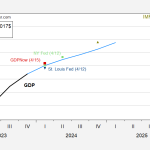“CEOs make too much and they exploit the common worker.”
This is a refrain I hear with surprising regularity at college. When pressed, many claim it seems impossible that one person could produce something of so much value, while others do not.
However, many of the voices that decry income inequality see nothing wrong with preferring Charli D’Amelio, Kanye West, or Andrew Sullivan’s content. Consuming celebrity content tends to promote the very income inequality they think should be impossible. Fortunately, these entertainers can teach us something about how the ‘superstar’ effect works with, well, superstars.

The superstar effect is when an individual gets a disproportionate share of the gains from what seems like small differences in ability. In the digital age, more of the economy has converted to winner-take-all situations because the marginal costs of producing an additional unit of a good are small, and the fixed cost associated with getting started is high. If two products cost the same, but one is better, people are almost always going to choose the superior product. Since there is not a clear limit to the supply of the superior product, only the best services are frequented, and wealth is distributed disproportionately to the especially talented.
Some may suggest we resist the income distribution that comes from superstar firms. In effect, this means choosing inferior goods over superior goods. If it costs ten dollars to see a movie, I’d prefer to watch a good one. Resisting the superstar effect may result in having a society of worse. As a general rule, people prefer having the best option for a given price and prefer better products. In effect, resisting a more unequal distribution means choosing worse stuff.
Charli D’Amelio is the among the most famous of the TikTokers. She started posting dance videos in 2019 and has leveraged her 100 million followers to obtain sponsorships, and create a podcast and a makeup line that has moved her net worth to $20 million dollars. The popularity she has attained has resulted in a considerable windfall.
One can imagine that D’Amelio may not have been as popular had she gotten involved later in TikTok, or that she exploits the employees of TikTok by sharing a disproportionate share of the platform’s gains. In a sense, these arguments against her wealth boil down to the premise, “you didn’t make that.” Still, the revealed preferences of those who prefer to purchase her products signifies that she creates something extraordinary. If it was as simple to create value as detractors claim, it seems odd that others would not be in similar positions.

Kanye West is another example. As a rapper, he was known for his creativity and artfulness and is one of the best of all time. His net worth is around $1.8 billion dollars, which is fueled in large part by his Yeezy brand. The value of the brand in turn, builds on the status associated with his music. There are scores musicians, some who probably have lyrics almost as good as Kanye’s. However, few consumers want to pay for second best, and the cost of producing another ‘Homecoming’ download is infinitesimal. The small differences in a winner-take-all environment matter.
Journalism is dying has become another standard refrain. A better refrain might be that journalism is becoming customizable. Instead of having to pay for a New York Times subscription, I can choose to read only the authors I see as insightful. The creation of Substack has made it so that institutions are less able to gatekeep authors people want to read, and it allows readers to avoid paying for the chaff. The beneficiaries of the customizability of journalism are those who produce content people are interested in. Andrew Sullivan is an example. After leaving New York Magazine for expressing an unpopular opinion, Sullivan quadrupled his income and can be paid closer to the value he creates, while maintaining editorial control.
This trend of people being paid significant sums for the value they create is no different in the business world, but it seems significantly less flashy. Tyler Cowen estimates that the skillsets of CEOs allow them to capture between 68 and 73 percent of the value they bring to firms compared to an estimate that workers are paid approximately 85% of their marginal product on average. The value they create is harder to visualize than the output of celebrities, but it illustrates the same concept.


